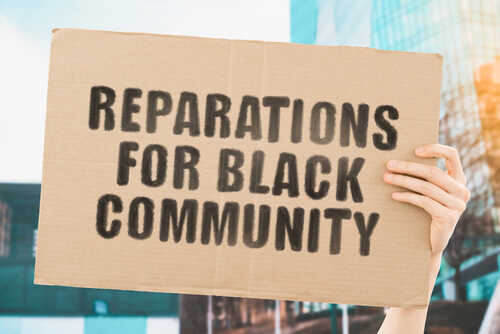(FiveNation.com)- The city of San Francisco in California is considering the possibility of paying reparations to people in its black community for the systemic racism they’ve faced and slavery of the past.
On Tuesday, the city’s Board of Supervisors held the first hearing on this subject, where they are seriously considering monetary reparations for ills of the past.
Shamann Walton, one of the supervisors, said that these reparations were indeed necessary. However, he said the board wasn’t yet prepared to officially say they were going forward with reparations or specifically “what recommendations we will be supporting or moving forward with.”
The Associated Press recently reported that Walton added:
“It is not a matter of whether or not there is a case for reparations for black people here in San Francisco. It is a matter of what reparations will and should look like yet.”
There are a few different proposals that have been kicked around on the topic of reparations. One would see an initiative where black families would be able to purchase a home in San Francisco for $1. Others have discussed eliminating various tax burdens on black people, eliminating some of their debt and potentially even giving them direct payments.
The AP pointed out in its story that there was one estimate that indicated that all families in the city who weren’t black could pay up to $600,000 each for such a plan to be financed properly.
Back in January, the African American Reparations Advisory Committee in San Francisco said there should be a “one-time, lump sum payment of $5 million to each eligible person.” The group also called for the establishment of “legal structures to protect those who receive reparations from financial speculators or predators including court block accounts/trust accounts.”
One of the draft plans outlined some of the eligibility details that could be required. This included people having to be 18 years old at least, having to be identified as either African-American or black on some public documents for at least the 10 years, and be able to meet an ancestry or residency requirement.
Many critics of reparations plans have questioned what the basis for the reparations would be in San Francisco over slavery. This is because California was admitted to the Union as a free state. In other words, there was never any slavery of black people in the state of California.
In total, there are less than 50,000 people who live in the city and identify as being black.
Some of the supervisors on the board were apparently surprised that there was pushback about the reparations plan from people in the city who consider themselves to be liberal.
Rafael Mandelman, a supervisor who represents a district that includes the neighborhood of Castro – which has a large LGBTQ community – commented:
“Those of my constituents who lost their minds about this proposal, it’s not something we’re doing or we would do for other people. It’s something we would do for our future, for everybody’s collective future.”














